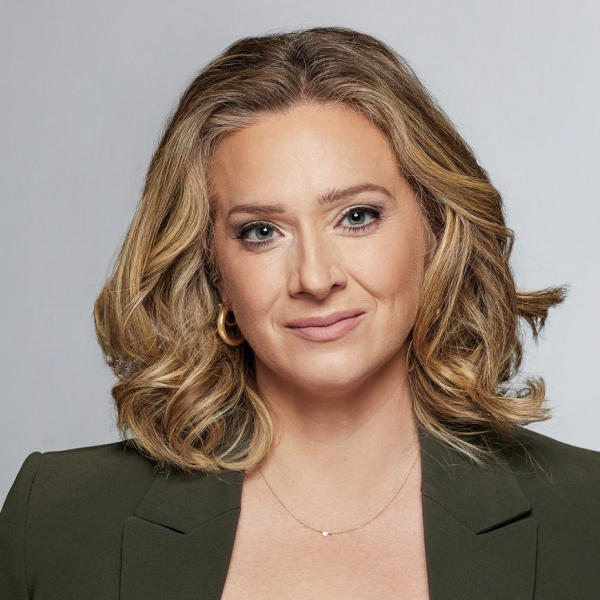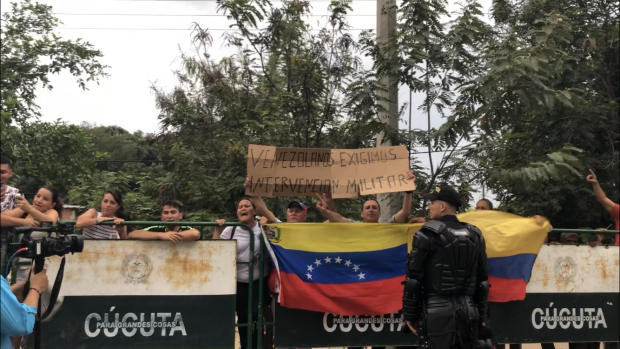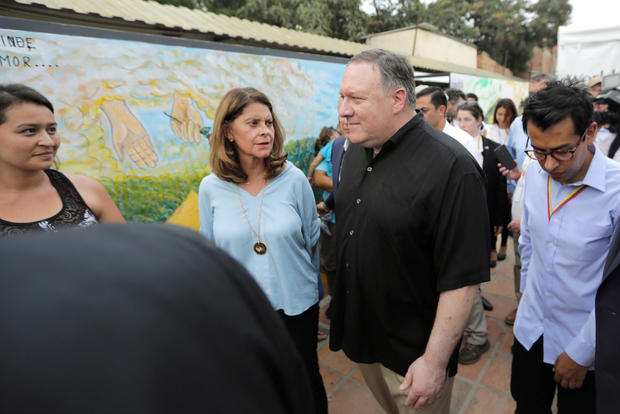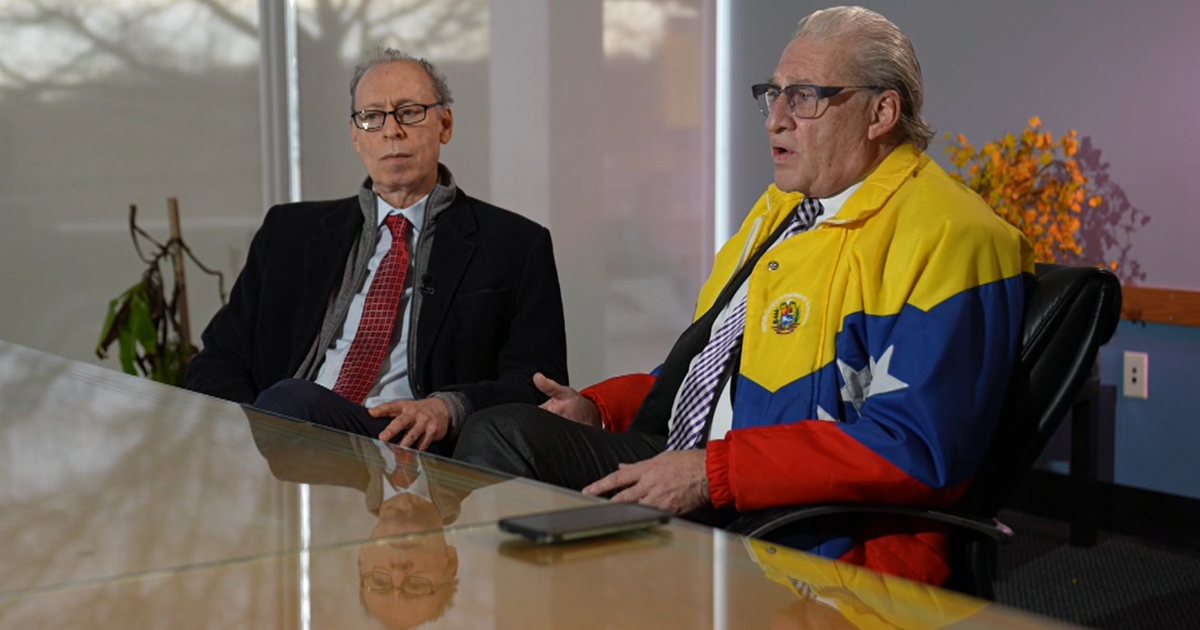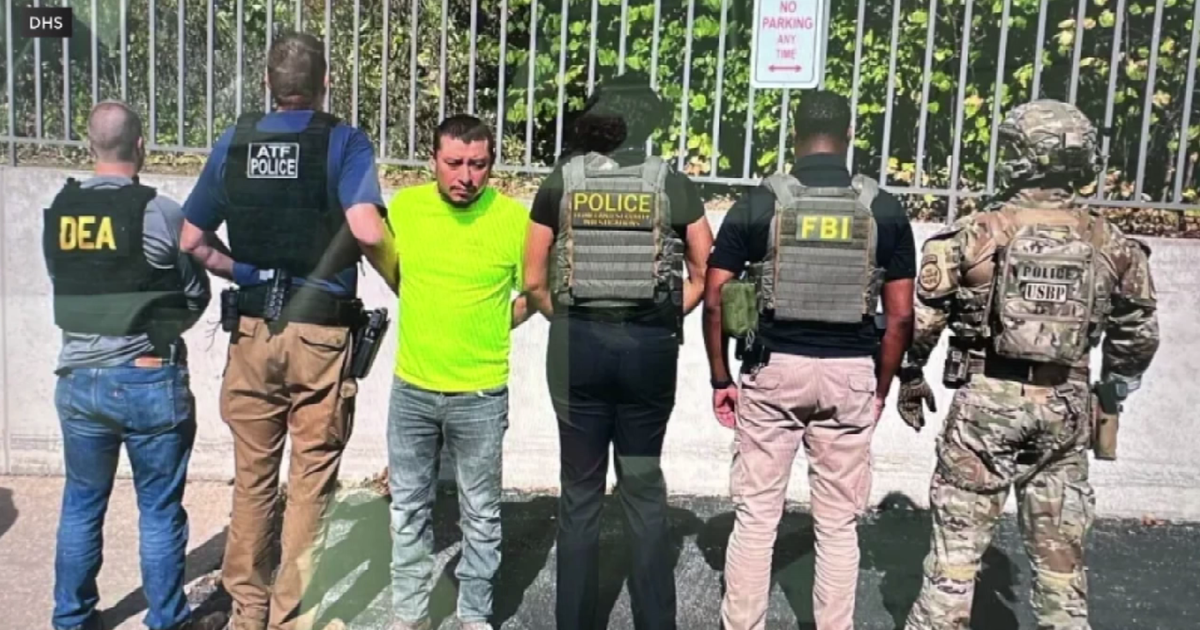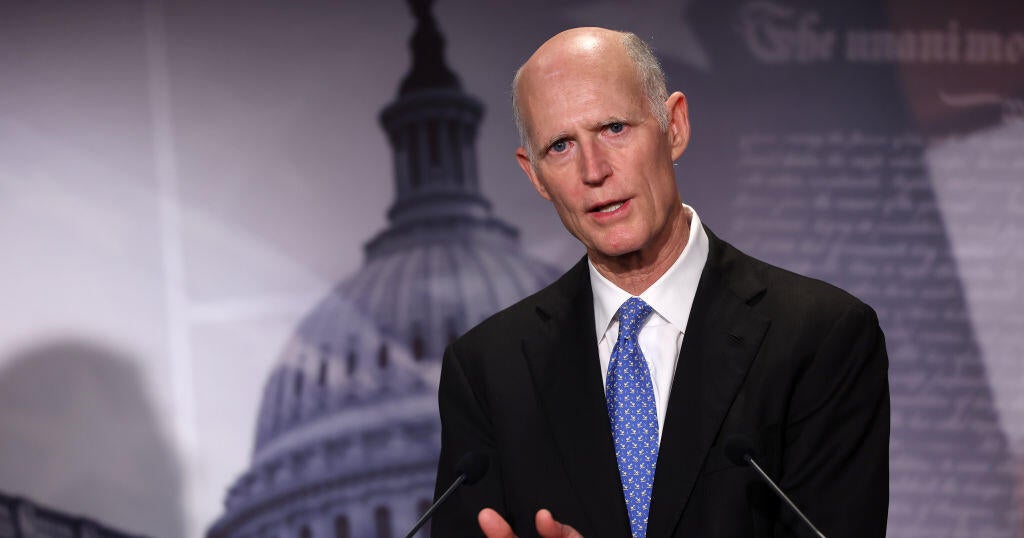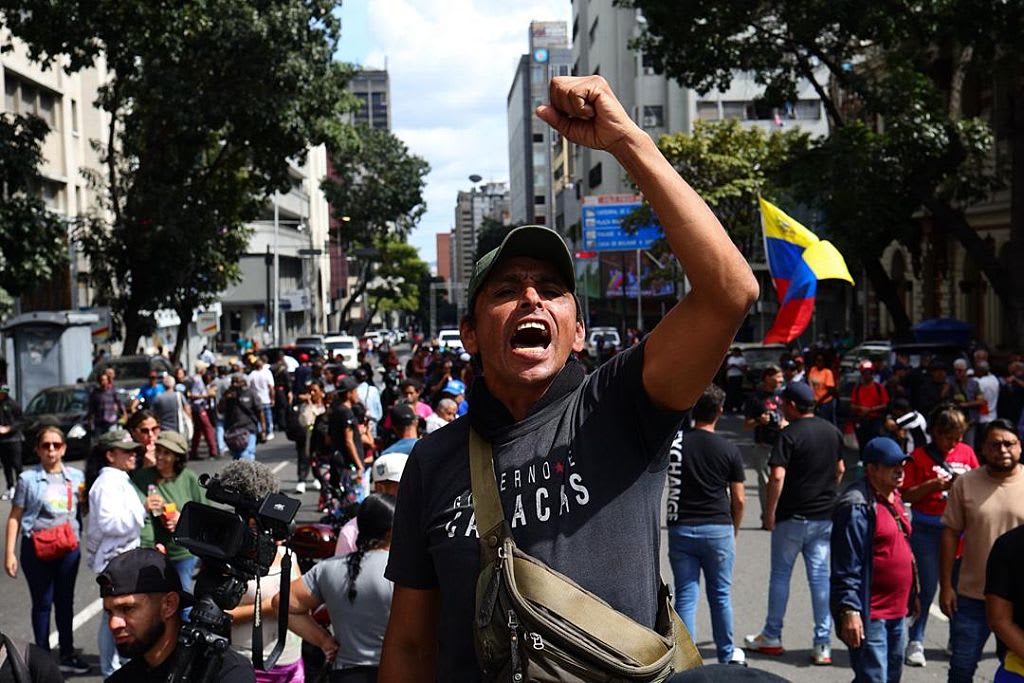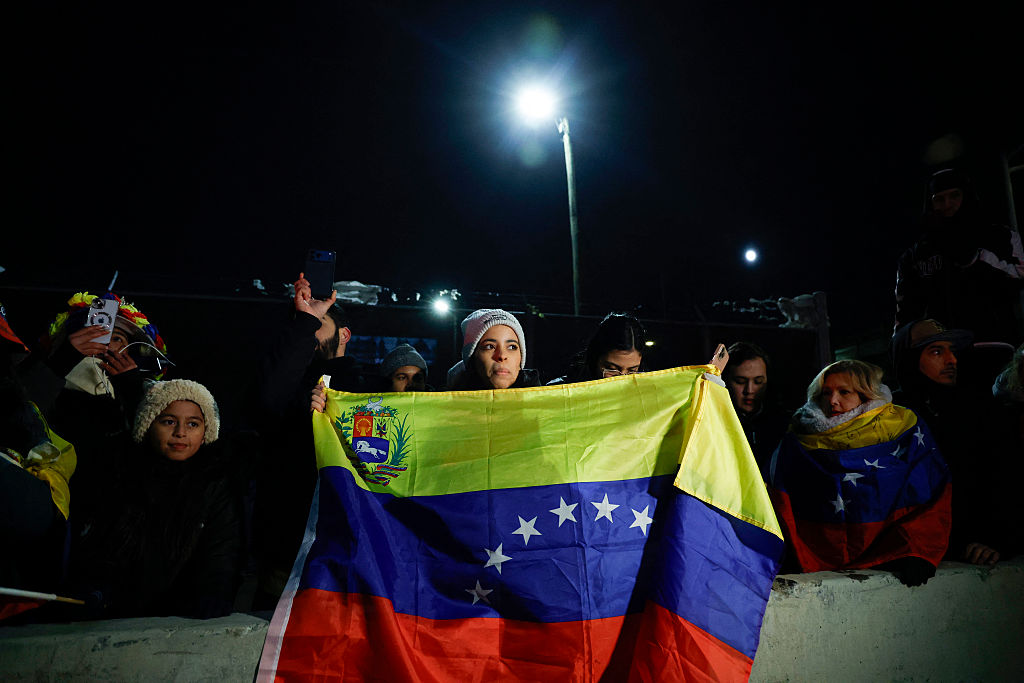Venezuelan refugees demand U.S. action as Pompeo visits Colombian border
Cucuta, Colombia -- People clung to the outside rails of the Simon Bolivar Bridge to watch as President Ivan Duque and U.S. Secretary of State Mike Pompeo walked the same path taken by almost 4,000 Venezuelan refugees every day. The influx of refugees "has created a great social and economic shock," Duque said, standing next to Pompeo in the muggy Colombian heat. "But as I always said, we are here to help the Venezuelan people who are running away from a brutal dictatorship."
One and a half million Venezuelans have fled across the border into Colombia in the last two years. Venezuelan refugees demonstrated as Pompeo visited with Duque over the weekend, chanting "libertad!" and anti-Maduro slogans.
When asked what they wanted from the United States, the protesters yelled back: "intervention!"
Prospect of military intervention
The Trump administration has consistently said that all options are on the table in its efforts to get Maduro to step down. He has been declared an illegitimate leader by the U.S. and dozens of other nations, which have thrown their support behind interim President Juan Guaido.
But the White House has not given any public indication that a military intervention might be in the works, emphasizing instead diplomacy, sanctions and visa restrictions against the Maduro regime.
Pompeo has also called out the Cuban and Russian governments for supporting Maduro, including by sending troops and military assets into Venezuela.
"Cubans must understand too that there will be cost associated with continued support of Nicolas Maduro," Pompeo told journalists traveling with him. "And we're going to have that same conversation with the Russians as well."
Cuba aside, there has rarely been as much political consensus in the region as there is over the Venezuela crisis. Leaders in every country Pompeo visited made statements showing them consistently aligned with U.S. policy. But that doesn't make the decision to take military action any easier.
Even after proclaiming that, "with dictators, with tyrants, there is no dialogue. You fight them," Paraguay's Foreign Minister Luis Castiglioni didn't appear ready to send in the troops.
"We are convinced that all the diplomatic efforts that are being made to isolate this regime will have results in a short time," he said.
Re-engaging the neighbors
The Trump regime has put a renewed focus on South America. Pompeo, President Trump and Vice President Mike Pence have paid a relatively high number of visits to South and Central American cities compared to the previous two administrations.
The reengagement has been welcomed -- along with an increase in direct investment -- especially by nations with democratizing governments and growing economies eager for closer economic ties to the U.S.
Before reaching the Venezuelan border, Pompeo met a group of local business leaders in Lima, Peru, and in Chile and Paraguay he touted the shared values and growing economic ties between the U.S. and those nations.
In Colombia, however, and especially in the show of solidarity with displaced Venezuelans, the top U.S. diplomat's mission was clear: keep mounting pressure on Maduro and his international backers, and keep demonstrating that the U.S. is doing all it can to help in the meantime.
Border crisis at home
Pompeo rejected the notion that the Trump administration's policy with migrants at the United States' own border has stood in contrast to its sympathetic rhetoric toward displaced Venezuelans.
"There is nothing like what's taking place at the hands of Nicolas Maduro anywhere in Central or South America," he said. "To compare the two is ludicrous. Nicolas Maduro is denying food that's sitting here."
The Venezuelans -- a quarter of whom the United Nations says need urgent food assistance and a whopping 94 percent of whom are living in poverty -- "aren't people that are starving because the country doesn't have wealth," Pompeo told CBS News in an interview on behalf of U.S. television networks. "These are people that are starving because the political leadership, the military thugs inside of Venezuela, have destroyed their capacity to produce crude oil, they have destroyed the capacity to grow crops, they have denied their people aid that is sitting right at the border."
Asked earlier on the trip if he had gotten pushback from Latin American leaders over the Trump administration's decision to cut aid to Guatemala, Honduras, and El Salvador -- the Northern Triangle -- the points of origin for most in the large migrant caravans that arrive at the U.S. southern border, Pompeo said they understood the U.S. position.
"Everyone, every country understands that nations have to protect their borders and establish sovereignty," he said. "I haven't heard any pushback from these countries on our efforts to do that."
